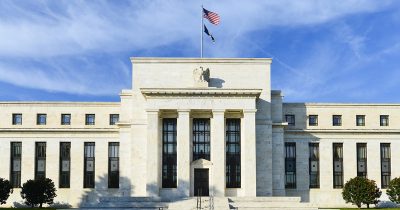Will the Fed's New $2.3 Trillion of Credit Affect Bitcoin?

Key Takeaways
- A common maxim among Bitcoin enthusiasts is that inflation led by the Fed's easy money will directly lead to BTC's price appreciation.
- Instead, the delicate balance of supply and demand paints a much more nuanced picture.
- A wholly different thesis may be the reason for Bitcoin's success over the past decade.
Share this article
In response to the disastrous unemployment data, the Fed will lend an additional $2.3 trillion directly to cities, states, and mid-sized businesses. These expansions are often seen as a catalyst for Bitcoin price appreciation, but this is becoming more uncertain as the economy plunges into a recession.
Is Bitcoin a Recession Hedge?
The Federal Reserve’s new credit expansion may not affect Bitcoin in the way that most crypto enthusiasts expect.
The bank is authorized to provide liquidity to repo markets and certain financial institutions. This is done by buying bonds from these institutions and giving them much needed cash. Usually, bond purchases are treasury bills and sometimes asset-backed securities.
This time, the Fed is buying corporate bonds that are below investment grade, widely known in Wall Street as “junk bonds.” This move is unprecedented.
After confirming its status as a risky asset, Bitcoin has broadly moved in line with the S&P 500. For almost every up and down move in traditional markets, BTC has followed in near lockstep.
Risk assets are by no means a recession hedge – but they are an inflation hedge.
If the Fed’s credit spree is not met by sufficient demand from the market, there is not much of a case for inflation, let alone hyperinflation. A lack of demand and constant supply is, in fact, a recipe for deflation, as evidenced by Japan in the early 2000s.
Demand in this context refers to businesses asking for loans and consumers taking out mortgages for homes. In the graph below, total consumer demand has been on a steady decline. This has kept prices at a low inflation rate.
As a proven inflation hedge, Bitcoin may not be a beneficiary of the Fed’s new scheme if there is not adequate demand for the incoming supply.
Conversely, if there is a rush for credit, this could instigate years of high inflation as the money supply expands on a permanent basis.
In a deflationary economy, Bitcoin and other risk assets could fall out of favor as money inherently gains value with each passing year. But if inflation returns, Bitcoin could enjoy favor as the Fed and its peers manage the situation.
Concluding, years of easy money from central banks around the world didn’t cause inflation. The reasons are more nuanced and readers should keep a closer eye on both sides of the supply and demand equation.
The sum of this operation will reveal more agents and elements than simply the Fed.
And Bitcoin thriving during the last decade may be less related to money printing and more related to a thesis for sound money.
Share this article
